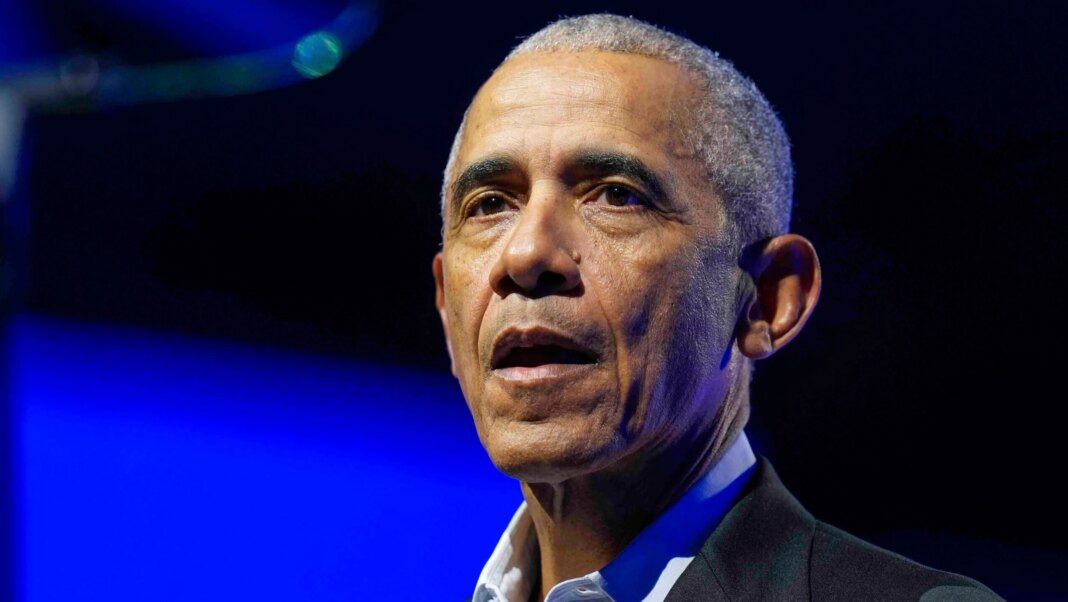Barack Obama and Ms. Rachel’s Unexpected Exchange: A Discussion on Human Rights in Gaza
In a surprising twist, former President Barack Obama has found himself at the center of a public critique from a well-known figure in children’s media: Ms. Rachel, a beloved YouTube personality and educator. With a following that exceeds 4 million on Instagram and over 17 million subscribers on her YouTube channel, Ms. Rachel’s impact is significant, especially when it comes to her advocacy for children and families. This intricate dialogue revolves around the ongoing conflict in Gaza and the language used in public statements regarding the situation.
The Context of Criticism
Following the recent announcement of a deal to end a protracted conflict in Gaza, Obama released a statement expressing hope for a resolution and acknowledging the suffering endured by both Israeli families and “the people of Gaza.” His language, however, did not sit well with everyone. Ms. Rachel, whose real name is Rachel Griffin Accurso, took to social media to voice her concerns. She perceived Obama’s choice of words as contributing to the dehumanization of Palestinians, a poignant issue given the backdrop of the ongoing humanitarian crisis.
An Open Letter to the Former President
In her open letter to Obama, Ms. Rachel pointedly highlighted the disparity in language that referred to “Israeli families” while merely acknowledging “the people of Gaza.” “Dear President Obama,” her letter began, “this kind of language contributes to dehumanization.” In her view, this kind of rhetoric can lead to profound consequences, including silence in the face of tragedy. She poignantly remarked on the painful reality that, through such language, the voices of grieving Palestinian families are often overshadowed.
The letter resonated with many, illuminating the complexity and depth of the humanitarian crisis in Gaza. Ms. Rachel’s assertion that “Palestinians have families too” strikes at the heart of the modern discourse around conflict, challenging preconceived narratives and urging a more inclusive viewpoint.
The Power of Social Media Advocacy
Ms. Rachel’s critique does not exist in a vacuum; it is part of a broader trend where social media influencers play critical roles in shaping public discourse. With her enormous platform, Ms. Rachel has leveraged her influence to advocate for inclusion and compassion, particularly when it comes to marginalized communities. In the caption accompanying her Instagram post, she expressed her long-standing admiration for Obama but questioned why his statements appear to lack the recognition of Palestinian equality. By doing so, Ms. Rachel brought attention to a vital issue that echoes the sentiments of many watching the conflict unfold.
A Call for Equal Humanity
This dialogue highlights a crucial theme that underpins discussions surrounding humanitarian crises: the recognition of common humanity. In her message, Ms. Rachel emphasizes that “all people and all children are equal and deserve the same human rights.” This perspective challenges leaders, activists, and citizens alike to examine their language and the narratives they support.
Furthermore, Obama’s previous remarks, while intended to express empathy for all affected by the conflict, inadvertently reflect a broader challenge in how global narratives often obscure the voices of those most impacted. Ms. Rachel’s concerns are not merely about words but about the implications of these narratives on real lives and global perceptions.
The Ongoing Conflict in Gaza
The conflict in Gaza has been marked by significant loss and suffering, with Obama highlighting the staggering toll of over 67,000 Palestinian lives lost since October 7, 2023. In his statement, he recognized the immense pain endured on both sides and encouraged a renewed focus on rebuilding and healing. However, Ms. Rachel’s voiced discontent uncovers a deeper societal wound—how conflicts are discussed and who gets the space in these discussions.
The Role of Influencers in Advocacy
The role of influencers like Ms. Rachel in social justice movements exemplifies a new era of advocacy. In a landscape where traditional media can sometimes fail to capture nuanced stories of suffering, figures with large followings can reach audiences directly, stirring conversations and urging action. This dynamic facilitates a more personalized and empathetic approach to global issues, reminding everyone that beyond statistics, there are human stories to be told.
In sum, this unexpected public exchange between Barack Obama and Ms. Rachel serves as a compelling reminder of the power of language, the necessity of inclusivity in humanitarian discussions, and the vital role that diverse voices play in advocating for global understanding and healing amid conflict.



